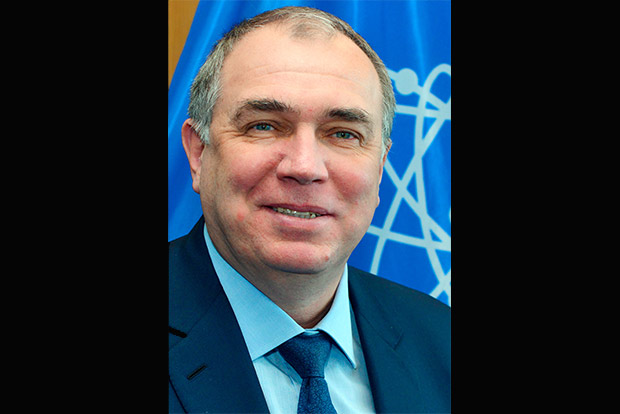Moscow
Thirty years after the Chernobyl tragedy and five years following the Fukushima accident, IAEA Deputy Director General Mikhail Chudakov underscored the importance of nuclear safety, asserting that the world should not forget the horrific disasters. “As for the future, NPPs and nuclear sites are the most sustainable energy sources in terms of environmental impact – of course, if there are no nuclear disasters,” Chudakov, who also heads IAEA’s Department of Nuclear Energy, said on the side-lines of the 11th International Public Forum-Dialogue “Nuclear Energy, Environment, Safety” here.
“But even with disasters, if we divide them by years of operation (making allowance for Fukushima and Chernobyl disasters), then the environmental and human health impact will be minimal for such an energy source as NPP, in contrast to coal and other power plants,” he said when asked about the accidents. Buttressing his contention with WHO data, Chudakov said over seven million people die annually of diseases directly connected with heavy metal and carbon dioxide emissions that are mainly caused by the coal-fired power industry. “This is official data. Unofficial figures are much higher. The nuclear power (industry) does not show such values. The level of health protection in the nuclear power (industry) is higher than that in other industries, in spite of the impact of Fukushima and Chernobyl,” he said.
Vouching for the safety of the Russian-built Kudankulam Nuclear Power Project in India, Chudakov said safe operation of nuclear power plants is based on IAEA documents and national regulatory authorities work in accordance with this documentation. “That’s why I believe that the Kudankulam NPP is as safe as many other NPPs operated and supervised by international organisations and national regulatory authorities,” he stressed. “For developing countries, climate also matters. Of course, many small developing countries do not act as major environmental polluters. But they can become polluters, if they start active development of their economy,” he warns.


